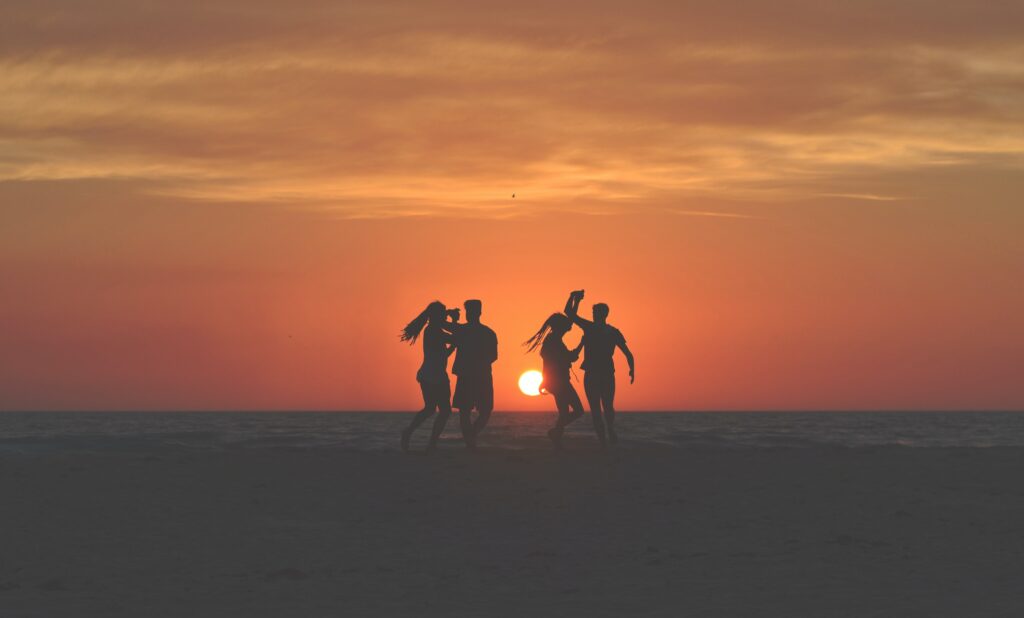What Determines the Difference Between Morning and Evening People?

Are you a morning person or an evening person? Do you know what determines the difference between the two?
There are a few key factors that affect whether a person is a morning person or an evening person. One is the person’s body clock or circadian rhythm. This is the body’s natural sleep/wake cycle, and it’s controlled by the release of certain hormones.
Another factor is the person’s lifestyle. If a person works a late shift or often stays up late, they’re more likely to be an evening person.
Finally, there’s a genetic component. Some people are simply wired to be morning people or evening people, and it’s not something that can be changed.
So, if you’re wondering why you can’t seem to switch from being a morning person to an evening person (or vice versa), it’s because of these factors.
The science of morning people vs. evening people
Most people fall into one of two categories: morning people or evening people. Morning people are typically more energetic and productive in the morning, while evening people are more likely to be night owls.
But what causes this difference? Is it simply a matter of personal preference, or is there something more to it?
Recent studies have shown that there is a scientific reason for this difference. It all has to do with our natural body clock or circadian rhythm. This is the 24-hour cycle that regulates our sleep-wake cycle. For most people, this cycle is dictated by the rising and setting of the sun.
People who are naturally inclined to wake up early have a higher level of the hormone cortisol in their bodies. This hormone helps to regulate our sleep-wake cycle and makes us more alert in the morning. On the other hand, people who are more likely to stay up late have a lower level of cortisol in their bodies.
So, if you’re a morning person, you can thank your higher levels of cortisol for that!
Of course, there are always exceptions to the rule. There are those that naturally wake up early and find that they’re more productive at night. Others may be evening people but find that they work better in the morning.
There are a few things you can do to find out which category you fall into. First, pay attention to when you naturally wake up. Do you find yourself naturally waking up earlier or later in the morning?
You can also try going to bed and waking up at the same time every day for a week. See how you feel after doing this. Do you find that you’re more productive during the day or at night?
Lastly, think about when you feel most energetic. Do you tend to feel more energetic in the morning or at night?
Once you’ve determined which category you fall into, you can start adjusting your sleep schedule accordingly.
If you’re a morning person, try going to bed earlier and waking up earlier. If you’re a night person, try going to bed later and waking up later.
You may find that you need to experiment with different sleep schedules before you find one that works best for you. But once you find a sleep schedule that works, stick to it as much as possible.
The impact of sleep on our bodies
We all know that getting a good night’s sleep is important for our health. Did you know that sleep helps develop our bodies and minds? Studies have shown that sleep deprivation can lead to many health problems, including weight gain, depression, and even heart disease.
We also suffer when we don’t get enough sleep physically and emotionally. Sleep also plays a crucial role in our cognitive development, memory, and learning. If you’re looking to boost your brain power, make sure you’re getting enough shut-eye!
The benefits of being a morning person
There are many benefits to being a morning person. For one, morning people are often more productive and successful than night owls. They tend to get more done in the morning hours because they are well-rested and have the energy to tackle the day ahead. Additionally, morning people are often more optimistic than those who prefer to stay up late. This positive attitude can lead to a more successful and fulfilling life.
If you’re not a morning person, there’s no need to worry. You can still be successful and lead a happy life. However, if you want to reap the benefits of being a morning person, it might be worth considering changing your habits. There are many benefits to becoming a morning person, so it’s worth a try.
The benefits of being an evening person
Scientists have long known that people can be divided into two groups: those who are “morning people” and those who are “evening people.” Morning people are typically more productive and energetic in the morning, while evening people are more productive and energetic in the evening.
There are many benefits to being an evening person. Studies have shown that evening people are more likely to be successful in their careers, and they also tend to be more creative and intelligent than their morning counterparts. They also tend to be more outgoing and less likely to suffer from anxiety and depression.
If you’re an evening person, don’t worry – you’re in good company! Embrace your natural tendencies and you’ll be sure to find success in whatever you do.
The best time of day for different activities
There’s no one best time of day for different activities. However, some general guidelines can help you plan your day in a way that maximizes your productivity and energy levels.
For example, if you’re looking to get some exercise, the best time of day is typically early in the morning, when your body is fresh, and you have the most energy. If you’re looking to do some creative work, late morning or early afternoon is often a good time, as you’ll be able to take advantage of the natural lull in energy that typically happens around that time. And if you’re looking to do some study or work on a project, the evening is often the best time, as you’ll be able to focus more easily without distractions.
Of course, these are just general guidelines, and you’ll need to experiment to find out what works best for you.
What determines the difference between morning and evening people?
While there is some scientific evidence to suggest that our genes play a role, the jury is still out on whether this is the whole story. There is a great deal of variation among individuals regarding when they are most productive during the day. Some people are morning people, while others are evening people. The science of morning people vs. evening people shows that there are differences in brain function between these two groups. The impact of sleep on our bodies also plays a role in determining whether we are a morning person or an evening person.
Ultimately, what works best for you will depend on your own individual preferences and needs.

